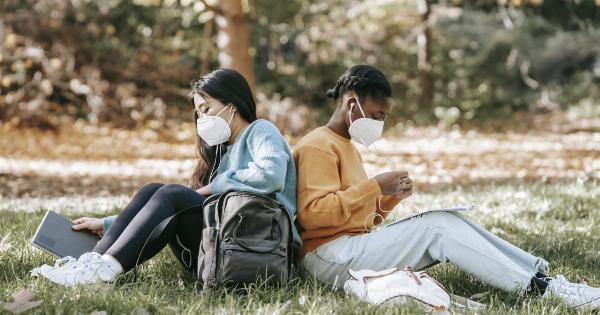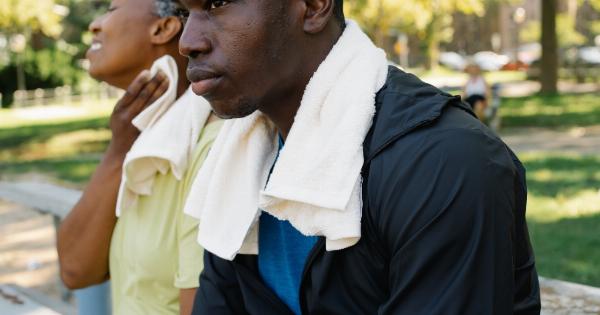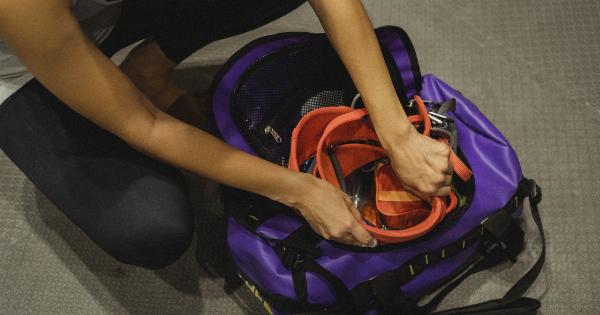Summer is a season of fun and relaxation, but it is also a time when various illnesses can strike. The hot weather, outdoor activities, and change in routine can put our health at risk if we are not careful.
In this article, we will explore ten common summer illnesses and provide tips on how to stay safe and healthy during this season.
Sunburn
Sunburn is a common ailment during the summer due to prolonged exposure to the sun’s harmful ultraviolet (UV) rays. It can cause redness, pain, and even blistering of the skin.
To prevent sunburn, it is important to wear sunscreen with a high sun protection factor (SPF), cover exposed skin with clothing, and seek shade during peak sun hours.
Heat Exhaustion
Heat exhaustion occurs when the body overheats due to excessive heat exposure and inadequate fluid intake. Symptoms may include dizziness, fatigue, nausea, and heavy sweating.
To prevent heat exhaustion, it is crucial to stay hydrated by drinking plenty of water, avoid strenuous physical activities during the hottest part of the day, and wear lightweight and breathable clothing.
Heatstroke
Heatstroke is a severe form of heat illness that can be life-threatening. It happens when the body’s temperature regulation system fails, and the body temperature rises rapidly.
Symptoms may include a high body temperature, altered mental state, rapid heartbeat, and confusion. To prevent heatstroke, it is essential to avoid extreme heat and humidity, stay hydrated, and seek immediate medical help if someone exhibits signs of heatstroke.
Dehydration
Dehydration occurs when the body loses more fluids than it takes in. In hot summer months, excessive sweating and insufficient fluid intake can lead to dehydration. Symptoms include thirst, dry mouth, fatigue, and dark urine.
To prevent dehydration, it is important to drink water regularly, even if you do not feel thirsty, and avoid beverages that can dehydrate you further, such as alcohol and caffeinated drinks.
Food Poisoning
Food poisoning is more common during the summer due to the warmer temperatures, which can cause bacteria to multiply more rapidly. Consuming contaminated food can lead to symptoms like nausea, vomiting, stomach cramps, and diarrhea.
To prevent food poisoning, it is essential to practice proper food safety measures, such as washing hands before handling food, cooking meats thoroughly, and refrigerating perishable foods promptly.
Insect Bites and Stings
Summer brings an increase in outdoor activities, exposing us to various insects like mosquitoes, ticks, and bees.
Insect bites and stings can lead to allergic reactions, infections, and the transmission of diseases such as West Nile virus and Lyme disease. To protect yourself, use insect repellent, wear protective clothing, and avoid areas with high insect activity.
Swimmer’s Ear
Swimmer’s ear is an infection that affects the outer ear canal, commonly caused by water remaining in the ear after swimming. Symptoms include ear pain, itching, redness, and discharge.
To prevent swimmer’s ear, dry your ears thoroughly after swimming, tilt your head to each side to help drain any leftover water, and avoid inserting cotton swabs or other objects into your ears.
Allergies
Summer allergies can be triggered by pollen from grasses, flowers, and trees. Symptoms may include sneezing, itchy and watery eyes, nasal congestion, and coughing.
To minimize allergy symptoms, stay indoors during peak pollen times, keep windows closed, use air purifiers, and take over-the-counter antihistamines if necessary.
Heat Rash
Heat rash, also known as prickly heat, occurs when sweat ducts become blocked, leading to a rash of small, red bumps on the skin. It is commonly found in areas where sweat accumulates, like the neck, armpits, and groin.
To prevent heat rash, wear loose-fitting clothes made of breathable fabrics, keep the affected areas cool and dry, and avoid excessive sweating.
Skin Infections
Hot and humid weather creates the perfect environment for bacteria and fungi to thrive, leading to various skin infections.
Wearing damp clothes for prolonged periods, sharing towels or personal items, and walking barefoot in public showers or pools can increase the risk of these infections. To prevent skin infections, maintain good personal hygiene, avoid sharing personal items, wear clean and dry clothes, and protect your feet with sandals or flip-flops in public areas.
Conclusion
Summer is a wonderful time to enjoy outdoor activities and soak up the sun, but it is important to prioritize our health and take necessary precautions to avoid summer illnesses.
By following the tips mentioned in this article and being mindful of our bodies’ needs, we can ensure a safe and enjoyable summer season.





























